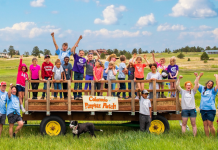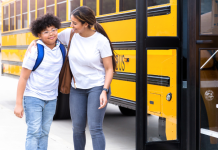
Grief is never an easy subject, and it is not a comfortable topic of discussion for most adults. Sadly, it is a subject that my nine year son is all too familiar with. During 2016, he experienced the lost of our beloved family dog, Duke as well as the death of a friend from his football team.
Duke was an old dog that had gotten frail in his last months with us. His death was not unexpected, but still stings. My son’s friend, however, died an unexpected and tragic death, and it shook all of us. These losses made my son’s world feel very unstable. He was heartbroken and grieving.
Guiding your child through grief is painful as a parent. We want to protect our loves from these difficult times, but death is a fact of life. Children have an amazing capacity to understand the unknowable, and their hearts love big. My son and I have learned from each other as we have navigated the pain. Here are a few tips I’ve picked up to help you navigate the difficult moments of heartache with your own children.
- Talk about the loved one you’re missing. It’s good to talk about them, share memories, tell stories and say “I miss them” out loud.
- Look at pictures of the loved one together. It can bring tears. But with each tear, grief can turn toward healing.
- It’s good to cry. Don’t let the feelings of loss and sadness eat up your insides. Let it out with a safe person.
- Creating a memorial can be helpful to honor all the memories. My son created a collage of our sweet dog. When he feels sad, he can look at it and remember Duke’s long, happy life.
- Don’t be afraid to reach out for help from a therapist, religious leader or grief support group. You don’t have to do this on your own. Seek direction for yourself as a parent and/or support for your child.
- It’s okay to answer your child’s deep questions about the afterlife with “I don’t know.” Share your beliefs with your child, and allow him to come to terms with his beliefs too.
Above all, hold onto each other and be kind. Extra hugs are good so that your child knows he is not traveling these rough paths alone, but that you’re by his side.













